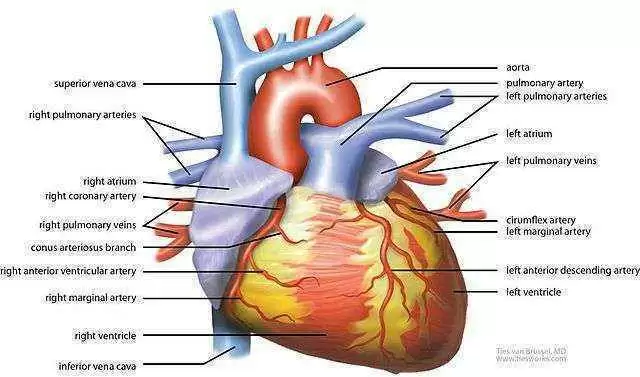
Celiac.com 05/08/2017 - Do non-celiacs who eat a gluten-free diet face a greater risk of developing coronary heart disease?
To shed some light on this question, a team of researchers recently set out to assess levels of long-term term gluten consumption in connection with the development of coronary heart disease. The research team included Benjamin Lebwohl, Yin Cao, instructor, Geng Zong, Frank B Hu, Peter H R Green, Alfred I Neugut, Eric B Rimm, Laura Sampson, Lauren W Dougherty, Edward Giovannucci, Walter C Willett, Qi Sun, and Andrew T Chan.
Celiac.com Sponsor (A12):
They are variously affiliated with the Celiac Disease Center, Department of Medicine, Columbia University College of Physicians and Surgeons, New York, NY, USA; the Department of Epidemiology, Mailman School of Public Health, Columbia University, New York, NY, USA; the Clinical and Translational Epidemiology Unit, Massachusetts General Hospital and Harvard Medical School, Boston, MA, USA; Division of Gastroenterology, Massachusetts General Hospital and Harvard Medical School, Boston, MA, USA; the Department of Nutrition, Harvard T. H. Chan School of Public Health, Boston, MA, USA; the Channing Division of Network Medicine, Department of Medicine, Brigham and Women’s Hospital and Harvard Medical School, Boston, MA, USA; and the Department of Epidemiology, Harvard T.H. Chan School of Public Health, Boston, MA, USA.
For their prospective cohort study, the team looked at 64,714 women in the Nurses’ Health Study and 45,303 men in the Health Professionals Follow-up Study. None of the subjects had any history of coronary heart disease, and all completed a 131 item semiquantitative food frequency questionnaire in 1986 that was updated every four years through 2010.
The researchers estimated gluten consumption based on the results of the food frequency questionnaires. Their study looked for patients who developed coronary heart disease, specifically fatal or non-fatal myocardial infarction. The team’s study data covered 26 years of follow-up, totaling 2,273,931 person years, 2431 women and 4098 men developed coronary heart disease.
Participants in the lowest fifth of gluten intake had 352 incidences of coronary heart disease per 100,000 person years, while those in the highest fifth had a rate of 277 events per 100,000 person years. This equates to 75 fewer cases of coronary heart disease per 100,000 person years.
After adjusting for known risk factors, the researchers noted that patients in the highest fifth of estimated gluten intake had a multivariable hazard ratio for coronary heart disease of 0.95 (95% confidence interval 0.88 to 1.02; P for trend=0.29).
After further adjusting for intake of whole grains, and leaving the remaining variance of gluten corresponding to refined grains, the multivariate hazard ratio was 1.00 (0.92 to 1.09; P for trend=0.77).
In contrast, after additional adjustment for intake of refined grains (leaving the variance of gluten intake correlating with whole grain intake), estimated gluten consumption was associated with a lower risk of coronary heart disease (multivariate hazard ratio 0.85, 0.77 to 0.93; P for trend=0.002).
Long term dietary intake of gluten was not associated with risk of coronary heart disease. However, the researchers do stress the importance of dietary whole grains, and that their absence may increase the risk of cardiovascular disease. Because of this, the team discourages people without celiac disease, or some other medical reason, from adopting a gluten-free diet.
Source:









Recommended Comments
Create an account or sign in to comment
You need to be a member in order to leave a comment
Create an account
Sign up for a new account in our community. It's easy!
Register a new accountSign in
Already have an account? Sign in here.
Sign In Now